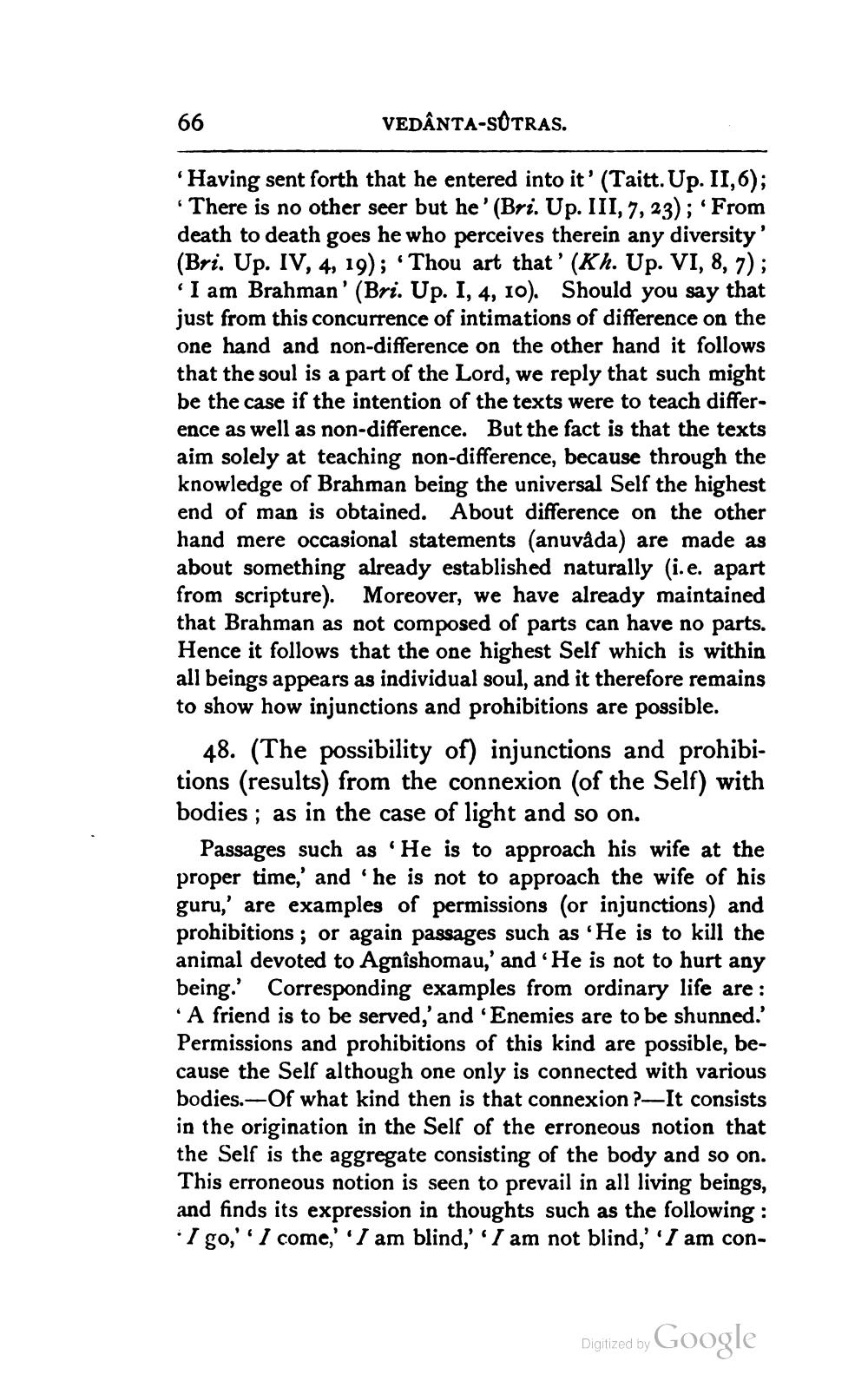________________
66
VEDÂNTA-SÓTRAS.
'Having sent forth that he entered into it' (Taitt. Up. II,6); • There is no other seer but he'(Bri. Up. III, 7, 23); 'From death to death goes he who perceives therein any diversity' (Bri. Up. IV, 4, 19); Thou art that' (Kh. Up. VI, 8, 7);
I am Brahman' (Bri. Up. I, 4, 10). Should you say that just from this concurrence of intimations of difference on the one hand and non-difference on the other hand it follows that the soul is a part of the Lord, we reply that such might be the case if the intention of the texts were to teach difference as well as non-difference. But the fact is that the texts aim solely at teaching non-difference, because through the knowledge of Brahman being the universal Self the highest end of man is obtained. About difference on the other hand mere occasional statements (anuvada) are made as about something already established naturally (i.e. apart from scripture). Moreover, we have already maintained that Brahman as not composed of parts can have no parts. Hence it follows that the one highest Self which is within all beings appears as individual soul, and it therefore remains to show how injunctions and prohibitions are possible.
48. (The possibility of) injunctions and prohibitions (results) from the connexion (of the Self) with bodies; as in the case of light and so on.
Passages such as 'He is to approach his wife at the proper time,' and 'he is not to approach the wife of his guru,' are examples of permissions (or injunctions) and prohibitions ; or again passages such as 'He is to kill the animal devoted to Agnîshomau,' and 'He is not to hurt any being. Corresponding examples from ordinary life are : • A friend is to be served,' and 'Enemies are to be shunned.' Permissions and prohibitions of this kind are possible, because the Self although one only is connected with various bodies. Of what kind then is that connexion - It consists in the origination in the Self of the erroneous notion that the Self is the aggregate consisting of the body and so on. This erroneous notion is seen to prevail in all living beings, and finds its expression in thoughts such as the following: I go,'' I come,' 'I am blind,' I am not blind,' I am con
Digitized by
Digized by Google




